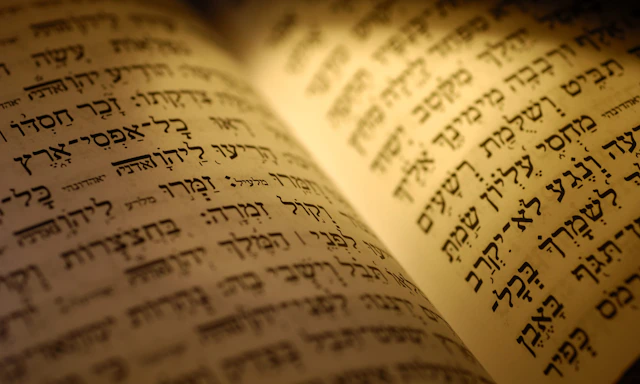
Stances of Faiths on LGBTQ+ Issues: Episcopal Church

With an estimated 2.3 million members, the Episcopal Church is open and welcoming of the LGBTQ+ community. Unlike the Worldwide Anglican Communion, of which it is a part, the Episcopal Church does not condemn homosexuality.
BACKGROUND
Among its statements of belief, the Episcopal Church includes, “In Jesus, we find that the nature of God is love, and through baptism, we share in his victory over sin and death.” They further emphasize, “We strive to love our neighbors as ourselves and respect the dignity of every person.”
With 2 million members, the U.S.-based Episcopal Church is just one branch of a worldwide Anglican Communion of 85 million. The church operates under the direction of two legislative bodies: the House of Deputies, with lay and clergy representatives from across the church, and the House of Bishops, which includes all bishops of the church. Together they make doctrinal, administrative and budgetary decisions at a General Convention that convenes every three years. An Executive Council of clergy and lay leaders manages the business of the church in the intervening period, and are elected at each General Convention, with a Presiding Bishop elected every nine years. Changes to the church constitution and to canon law are enacted only through a majority vote in both houses. The Constitution and Canons of the Episcopal Church set forth the rules and procedures that govern its congregations.
The Episcopal Church consists of nine provinces, each containing multiple dioceses. Some dioceses encompass an entire state and others are outside the United States in Europe, the Caribbean, and Central and South America. Each diocese has an administrative center and a diocesan bishop elected by the clergy and laity of that diocese’s parish churches. Funding comes from the voluntary contributions of congregants, with approximately 20% forwarded to church-wide missions and administrative needs.
LGBTQ+ EQUALITY
ON SEXUAL ORIENTATION & GENDER IDENTITY
In 1976, both the House of Deputies and House of Bishops voted for a fully inclusive Episcopal Church, stating, “homosexual persons are children of God who have a full and equal claim with all other persons upon the love, acceptance, and pastoral concern and care of the church.” Canon law includes “gender identity or expression” in its list of persons who are assured full access to the ministry of the church. The law further specifies that administrative forms must include options for both preferred and legal names, and for gender identity and pronoun preference. In an intentional move toward diversity, it adds,
“As transgender people and their families increasingly come out within or find their way to congregations, their specific naming in our Canons . . . will encourage congregations to deepen their understanding and widen their welcome.”
ON MARRIAGE EQUALITY
The Episcopal Church codified theological support for same-sex marriage with two resolutions passed in 2015. The first (A054) formally approved gender-neutral and same-sex marriage ceremonies, while the second (A036) changed the current marriage “canons” to allow clergy to officiate same-sex marriages using either a marriage rite from the Episcopal Book of Common Prayer or a “trial” liturgy.
In 2018, the Episcopal Church’s General Convention approved Resolution B012, expanding marriage rites for same-sex couples to all dioceses. One of the core compromises of B012 was to allow clergy who object to marriage equality on theological grounds to request that another bishop provide pastoral care and oversight for same-sex couples who wish to be married by priests in their home churches. The resolution also makes clear that no clergy member can be forced to preside over any marriage ceremony.
ON NON-DISCRIMINATION
The Episcopal Church supports non-discrimination and has canon laws specifying that everyone has access to the governance of the church and lists “sexual orientation, gender identity and expression” as specifically protected from discrimination. In 2018, the church committed to oppose all legislation that restricts public restroom, locker room and shower access for transgender and gender non-conforming people.
However, the 2018 General Convention also rejected Resolution (A091) that would have added new canonical nondiscrimination language that would extend beyond access to LGBTQ+ ordination and lay participation in church governance to cover the hiring and appointment of clergy.
ON ORDINATION
In 1994 “sexual orientation” was added to the non-discrimination canons for ordination in the Episcopal Church. In 2009 the Episcopal Church passed a resolution stating that, “God’s call is open to all,” and eradicating discriminatory barriers to the election of bishops. However, the church had already consecrated its first openly gay bishop in 2003.
The Episcopal Church also approved transgender ordination at its 2012 General Convention. Women have been ordained priests and elected bishops in the Episcopal Church since 1974.
RESOURCES
Integrity USA, a national organization working for the full inclusion of LGBTQ Episcopalians and their allies.
CONTACT INFO
The Episcopal Church
815 Second Avenue
New York, New York
Website: www.episcopalchurch.org
- Topics:
- Religion & Faith
Love Conquers Hate

